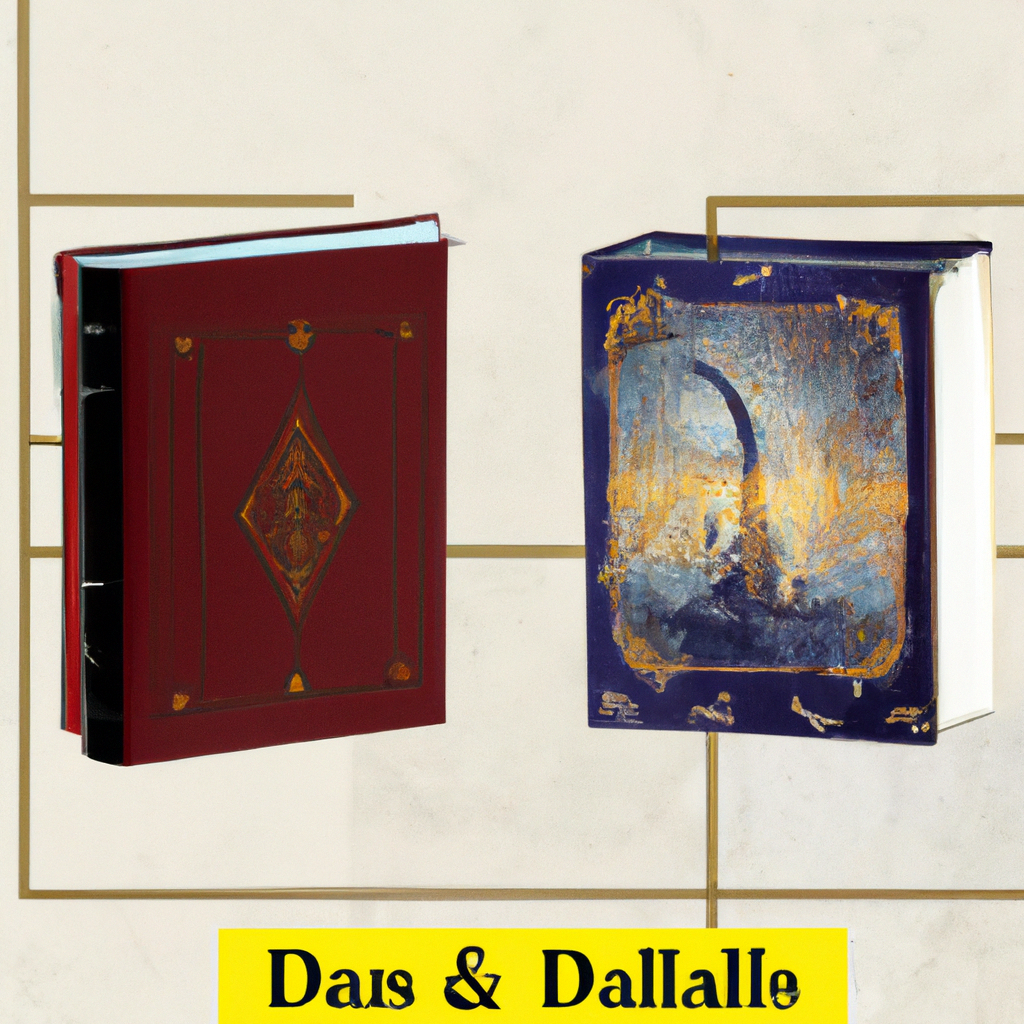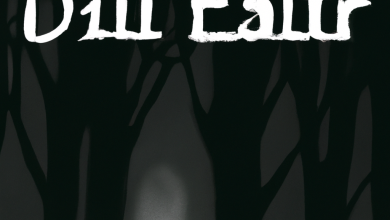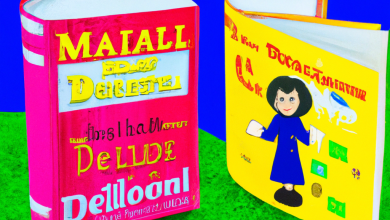
I. Introduction
For centuries, literature has been a cornerstone of culture and society, providing insight into the human condition and shaping our understanding of the world. Today, the written word continues to be a powerful means of communication, but there is an ongoing debate about which type of literature is better to read – classics or contemporary works. In this article, we will explore the advantages and drawbacks of reading both types of literature, and compare them to see which is ultimately more beneficial.
Definition of Classics and Contemporary Literature
When we talk about classics, we are referring to works of literature that have stood the test of time and continue to be relevant and widely read, even centuries after they were written. Some examples of classic literature include works such as Homer’s ‘The Iliad and The Odyssey,’ Shakespeare’s plays, Charles Dickens’ ‘Great Expectations,’ and Jane Austen’s ‘Pride and Prejudice.’ These works are hailed as classics because they are considered to be of high literary quality, and have had a significant impact on literature and culture as a whole.
Contemporary literature, on the other hand, refers to works that are currently being written and published. These works are often more reflective of modern society and its values, and are written in a variety of styles and genres. Some examples of contemporary literature include works such as J.K. Rowling’s ‘Harry Potter’ series, Margaret Atwood’s ‘The Handmaid’s Tale,’ and Chimamanda Ngozi Adichie’s ‘Americanah.’ These works are crucial in understanding modern culture and can be used to reflect on our changing values and beliefs.
Purpose of the Article
The purpose of this article is to explore the advantages and drawbacks of reading both classic and contemporary literature, and to determine which type of literature is more beneficial to read. We will examine the themes and values present in both types of literature, as well as the accessibility and readability of each. Additionally, we will explore how these types of literature can complement each other, rather than detract from each other’s value.
Overall, the goal of this article is to provide readers with a deeper understanding of the importance of reading literature, regardless of whether it is classic or contemporary. Whether you are a fan of the classics or prefer more contemporary works, there is a wealth of knowledge and insights to be gained from reading both types of literature.

II. Classics: Why Read Them?
When we talk about the classics, we are referring to literature that has stood the test of time. These are works that have the ability to deeply move, inspire, and offer insight into the human condition. But why read classics, especially when there is so much new and contemporary literature being published every day? Here are some of the reasons why reading classics is valuable:
Advantages of reading classics:
1. Historical Context: One of the primary reasons to read a classic is to understand the historical context of the work. These works of literature are rooted in their time period, and the themes and ideas they present often reflect the cultural, social, and political issues of the day. By reading these books, we can gain a greater understanding of the world in which they were written and how it has evolved over time.
2. Timeless Themes: Despite being rooted in their historical contexts, classic works of literature often explore timeless themes that remain relevant to this day. These themes include love, loss, friendship, the human condition, good versus evil, and the meaning of life itself.
3. Literary Tradition: Another advantage of reading classics is that they form the foundation of our literary traditions. Many contemporary authors draw inspiration from these works or make allusions to them, making reading classics essential if we want to better understand contemporary literature. As a result, reading classics can deepen our literary knowledge and improve our critical reading skills.
Classic literature’s impact on current literature:
The impact of classic literature on contemporary literature cannot be overstated. It has shaped countless authors and works, and its influence continues to be felt today. Reading and studying classic works can provide insights into literary techniques, themes, and styles that can enhance our appreciation of contemporary literature.
Moreover, many contemporary books use intertextuality to reference classic works, so knowing the classics can allow us to better appreciate and understand the references and allusions used in modern literature. For example, how many contemporary novels reference themes, characters, or plot elements from Shakespeare or other classic works?
In short, reading classics is valuable not only for the stories they tell, but also for the insights they offer into literary traditions and the impact they have had on contemporary literature.
III. Drawbacks of Classics
While classics are renowned for their literary value and contribution to current literature, some readers may find accessibility and readability to be a challenge. The language used in classic books, particularly those that were written centuries ago, can be intricate, dense, and unfamiliar. The reading experience may become tedious for some readers, causing them to lose interest or become overwhelmed.
Another consideration is the themes and values depicted in classic literature; these ideas may not necessarily align with contemporary beliefs. For example, classics written during eras when social norms were considerably different may exhibit themes and values that may be deemed offensive by modern-day society. Moreover, the portrayal of female characters, racial stereotypes, and language usage may prove irreconcilable with contemporary readers’ sensibilities.
Additionally, classics may touch upon themes of war, social inequality, or political issues relevant to the author’s time, which may not relate to modern issues. While classics have literary value, some readers may find that contemporary literature is more relevant and relatable.
However, despite the challenges of accessing and understanding classic literature, readers who can persevere and appreciate the intricacies of classic literature will be rewarded with a rich and immersive experience. The dense language and difficult themes offer an opportunity for readers to develop their critical thinking abilities and expand their understanding of literature and the world around them.
Nonetheless, contemporary literature offers its own advantages, particularly in relating to themes and values that align with modern society. Contemporary literature often touches upon societal concerns such as mental health, diversity, and LGBTQ+ rights. These themes are relevant and relatable, making it easier for readers to understand and engage with the content.
In conclusion, while there are some drawbacks to classic literature, such as accessibility and themes that may not align with contemporary beliefs, there are also significant advantages to reading classics. On the other hand, contemporary literature provides a more relevant and relatable experience for some readers. An appreciation of both forms of literature allows readers to develop a more profound understanding of the literary world and advance their reasoning skills.
IV. Contemporary Literature: Why Read Them?
Contemporary literature can refer to any literature that is currently being published and widely read, typically from the 20th century to the present day. Here are some reasons why you may want to consider reading contemporary literature:
– Reflection of modern society: One of the most significant advantages of contemporary literature is its ability to reflect modern society. Literature from the past can provide insights into what life was like during its period, but contemporary literature can offer a more accurate portrayal of current issues and events. By reading contemporary literature, you can gain a better understanding of the world around you and develop empathy for people from diverse backgrounds and experiences.
– Relevance and relatability: Contemporary literature is much more relatable to the contemporary audience than classic literature. Unlike classic literature that has an ancient time setting, contemporary literature is updated and reflects how we live now, the language of the contemporary literature is much more accessible and easier to understand, and its themes and issues addressed in today’s world, which makes it easier for readers to relate to the stories and characters.
– Exploration of current issues: Contemporary literature often addresses modern-day themes and issues, such as the environment, race, gender, sexuality, and mental health. Contemporary writers explore these topics in new and innovative ways, helping readers to better understand the complexities of today’s society.
– Experimentation with form: With the advent of new writing techniques, contemporary literature offers a range of experimental styles that challenge traditional narrative structures. Contemporary authors are not afraid to experiment with different writing styles, using fragmented narratives, stream of consciousness, and other techniques to tell their stories in a unique and compelling way.
Overall, contemporary literature provides readers with an opportunity to explore current issues, gain a better understanding of modern society, and experience new and innovative techniques in writing. While classic literature will always have a place in the literary canon, contemporary literature offers unique insights and perspectives on the world we live in today. It is essential to keep a balance between the two to have a comprehensive knowledge of literature.
V. Criticisms of Contemporary Literature
Contemporary literature is often criticized for being shallow, lacking depth and complexity compared to classic literature. Some critics argue that contemporary literature is more concerned with popular culture references, making the novel or story feel dated as soon as it is published.
One of the reasons for this lack of depth and complexity in contemporary literature is believed to be the market demands. Publishers may pressure authors to focus on plot-driven, fast-paced stories that can be easily adapted into films or TV series, rather than allowing writers the freedom to explore and develop their characters, themes, and ideas. This can result in works that prioritize action over expression, leaving the reader feeling unfulfilled.
Another criticism of contemporary literature is an overreliance on popular culture references, which can quickly date a book and make it seem irrelevant, just a few years after publication. While pop culture references can provide an entertaining and relatable backdrop to the story, they can be overused to the point of distraction. Moreover, as popular culture reference books have an immediate impact, it can be difficult to ensure that the works will stand the test of time and remain relevant for future readers.
However, it is important to recognize that some contemporary writers have found a way to merge popular culture and literary aspirations successfully. There are many contemporary works that incorporate popular culture without sacrificing literary merit. For example, Colson Whitehead’s “The Nickel Boys” references pop culture but remains a moving and powerful work about the effects of racism and societal injustices.
In conclusion, criticisms of contemporary literature’s lack of depth and complexity compared to classic literature are valid. However, the contemporary works that have successfully bridged pop culture with literary merit often go unnoticed. It is the responsibility of readers to seek out and celebrate these works while also recognizing the value that classic literature brings to our lives as readers. Ultimately, there is value in both classic and contemporary literature and the two can exist in a complementary relationship, with each type of literature enriching the other.
VI. Comparison between Classics and Contemporary Literature
Classics and contemporary literature are two different categories of literature that provide readers with unique and distinct reading experiences. While both categories have their respective advantages and disadvantages, comparing them can help readers understand how they differ and how they can complement each other.
Similarities between Classics and Contemporary Literature
Despite the time gap between classics and contemporary literature, they share some fundamental similarities. Both categories aim to entertain and enlighten readers, and both are written by authors seeking to convey their messages through storytelling. Additionally, both classic and contemporary literature contain literary elements such as symbolism, imagery, and themes that give readers insight into the human condition and the world around them.
Differences between Classics and Contemporary Literature
One significant difference between classics and contemporary literature is the writing style. Classic literature is often considered to have a more complex and challenging writing style. In contrast, contemporary literature is typically characterized as more accessible and easier to read. This writing style difference can be attributed to the time gap between the two categories, where language and writing styles have evolved.
Another difference is in the subject matter tackled by the authors. Classic literature frequently deals with traditional themes centered on topics like love, death, morality, and religion. Contemporary literature, on the other hand, often discusses modern issues such as poverty, mental health, diversity, and globalization.
How the Two Can Complement Each Other
Despite the differences between the two categories, classics and contemporary literature can complement each other. Classic literature can provide readers with insight into social and cultural practices or world views that transcend time. Simultaneously, contemporary literature can provide readers with a mirror that reflects current social and cultural issues, giving readers a better understanding of our current society.
Reading classics can also provide a better understanding of contemporary literature. For example, if a reader knows the symbolism and imagery used in “The Catcher in the Rye,” they’ll have an easier time spotting similar literary devices used by contemporary authors. On the other hand, reading contemporary literature can provide readers with a new perspective on classic literature. It can challenge readers to re-examine traditional themes and interpret them in a modern context.
Conclusion
In conclusion, both classics and contemporary literature have their respective advantages and drawbacks. Comparing them can provide insight into their differences and how they complement each other. While the two categories may seem vastly different, they both contribute to understanding the human condition, society, and the world around us. Reading both categories can enhance our understanding of human nature and the world.
VII. Conclusion
The debate between classics and contemporary literature remains a subject of intense debate among avid readers, literary scholars, and writers. While both types of literature have their unique strengths and drawbacks, the importance of reading both cannot be underestimated. The primary aim of this article was to provide a comparative analysis of the two, and we hope this has served its purpose.
In conclusion, we have seen that classics have a lot to offer in terms of their timeless themes, insights, and ideas that continue to influence contemporary literature. However, they can sometimes be challenging for modern readers to read and understand, given the complexity of the language, cultural references, and ideas.
On the other hand, contemporary literature is often more accessible and easier to read, reflecting the current thoughts and experiences of contemporary society. It is more relatable to modern readers and often deals with themes, issues, and challenges that people face today.
Nevertheless, contemporary literature has also been criticized for its short-sightedness, often lacking in depth, and complexity compared to classics. It can also be too reliant on popular culture references, which may age quickly and become irrelevant over time.
Therefore, the best approach is to appreciate both classics and contemporary literature for their unique strengths and insights. Instead of dismissing one in favor of the other, we should find a way to integrate both types of literature into our reading habits.
In conclusion, there is no clear winner in the debate between classics and contemporary literature. However, we can learn a lot from both by reading between the lines and exploring their various offerings. Ultimately, the importance of reading both types of literature lies in the fact that they are essential windows into different cultures, ideas, and thoughts. By reading them, we can broaden our horizons and gain a deeper understanding of the world around us.



